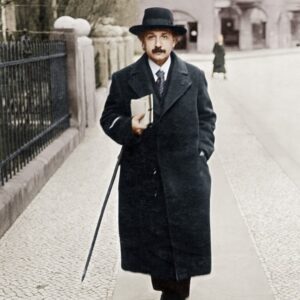Chicago Quantum Summit highlights new U.S. quantum centers, economic opportunities
+ The third annual Chicago Quantum Summit, hosted virtually at the University of Chicago Nov. 11-13 by the Chicago Quantum Exchange, brought together more than 20 speakers from across the nation and attracted more than 1,000 attendees from 42 countries.
+ While quantum technologies have the potential to create next-generation computers and sensors, “the challenge and the opportunity for us lays in advancing the necessary fundamental science and engineering to scale this technology and to really build a quantum economy,” said David Awschalom, Liew Family Professor in Spintronics and Quantum Information at the University of Chicago, director of the Chicago Quantum Exchange, and director of the new U.S. Department of Energy Q-NEXT center at Argonne National Laboratory.
[S]tartups like Zapata Computing, which is developing software for quantum computing, is working to secure the knowledge and IP needed to be successful in the future.
“If you don’t start now, you’re never going to be able to catch up, in the infrastructure sense and in the workforce development sense,” said Christopher Savoie, CEO and founder of the company.
That said, there is a lot of hype around the field, and investors and the public need to be realistic about timelines of deliverables, he said.
“It takes time, and there are going to be visionaries and curmudgeons,” he said. “I’m on the optimist side.”
+ This year’s summit comes on the heels of the announcement of five new U.S. Department of Energy National Quantum Information Science Research Centers and three new National Science Foundation Quantum Leap Challenge Institutes, authorized by the National Quantum Initiative Act.
+ The new centers and institutes comprise hundreds of researchers and students across dozens of universities, national laboratories, and industry partners. At the summit, each director gave an overview of their quantum center or institute goals.
+ These ranged from eliminating decoherence (when quantum bits, or qubits, lose the information they hold), scaling quantum systems, building qubit technologies, developing algorithms for quantum computation, and creating new quantum devices.
+ The centers and institutes will also work together to share insights and common problems, and facilitate collaboration, including exchanging researchers to ensure “that the whole is greater than the sum of the parts,” said Steven Girvin, Eugene Higgins Professor of Physics at Yale University and director of the Co-design Center for Quantum Advantage. “We’re all trying to solve fantastically difficult problems. We will be much better at it in coordination.”
+ Each center will also help to train the quantum workforce of the future, through elementary and high school STEM programming, new university-level initiatives, and post-graduate training.
Content may have been edited for style and clarity. The “+” to the left of paragraphs or other statements indicates quoted material from “Source:” document. Boldface title is original title from “Source:” Italicized statements are directly quoted from “Source:” document. Image sources are indicated as applicable.

